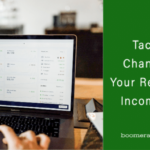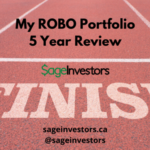 Spending money is easy. Saving and investing is supposed to be the difficult part. But there’s a reason why Nobel laureate William Sharpe called “decumulation,” or spending down your retirement savings, the nastiest, hardest problem in finance.
Spending money is easy. Saving and investing is supposed to be the difficult part. But there’s a reason why Nobel laureate William Sharpe called “decumulation,” or spending down your retirement savings, the nastiest, hardest problem in finance.
Indeed, retirement planning would be easy if we knew the following information in advance:
- Future market returns and volatility
- Future rate of inflation
- Future tax rates and changes
- Future interest rates
- Future healthcare needs
- Future spending needs
- Your expiration date
You get the idea.
We can use some reasonable assumptions about market returns, inflation, and interest rates using historical data. FP Standards Council issues guidelines for financial planners each year with its annual projection assumptions. For instance, the 2020 guidelines suggest using a 2% inflation rate, a 2.9% return for fixed income, and a 6.1% return for Canadian equities (before fees).
We also have rules of thumb such as the 4% safe withdrawal rule. But how useful is this rule when, for example, at age 71 Canadian retirees face mandatory minimum withdrawals from their RRIF starting at 5.28%?
What about fees? Retirees who invest in mutual funds with a bank or investment firm often find their investment fees are the single largest annual expense in retirement. Sure, you may not be writing a cheque to your advisor every year. But a $500,000 portfolio of mutual funds that charge fees of 2% will cost an investor $10,000 per year in fees. That’s a large vacation, a TFSA contribution, and maybe a top-up of your grandchild’s RESP. Every. Single. Year.
For those who manage their own portfolio of individual stocks or ETFs, how well equipped are you to flip the switch from saving to spending in retirement? And, how long do you expect to have the skill, desire, and mental capacity to continue managing your investments in retirement?
Finally, do you expect your spending rate will stay constant throughout retirement? Will it change based on market returns? Will you fly by the seat of your pants and hope everything pans out? What about one-time purchases, like a new car, home renovation, an exotic trip, or a monetary gift to your kids or grandkids?
Now are you convinced that Professor Sharpe was onto something with this whole retirement planning thing?
One solution is a Robo Advisor
One solution to the retirement income puzzle is to work with a robo advisor. You’ll typically pay lower fees, invest in a risk appropriate and globally diversified portfolio, and have access to a portfolio manager (that’s right, a human advisor) who has a fiduciary duty to act in your best interests.
Last year I partnered with the robo advisor Wealthsimple on a retirement income case study to see exactly how they manage a client’s retirement income withdrawals and investment portfolio.
This article has proven to be one of the most popular posts of all time as it showed readers how newly retired Allison and Ted moved their investments to Wealthsimple and began to drawdown their sizeable ($1.7M) portfolio.
Today, we’re checking in again with Allison and Ted as they pondered some material changes to their financial goals. I worked with Damir Alnsour, a portfolio manager at Wealthsimple, to provide the financial details to share with you.
Allison and Ted recently got in touch with Wealthsimple to discuss new objectives to incorporate into their retirement income plan.
Ted was looking to spend $50,000 on home renovations this fall, while Allison wanted to help their daughter Tory with her wedding expenses next year by gifting her $20,000. Additionally, Ted’s vehicle was on its last legs, so he will need $30,000 to purchase a new vehicle next spring.
Both Allison and Ted were worried how the latest market pullback due to COVID-19 had affected their retirement income plan and whether they should do something about their ongoing RRIF withdrawals or portfolio risk level.
Furthermore, they took some additional time to reflect on their legacy bequests. They were wondering what their plan would look like if they were to solely leave their principal residence to their children, rather than the originally planned $500,000. Continue Reading…









